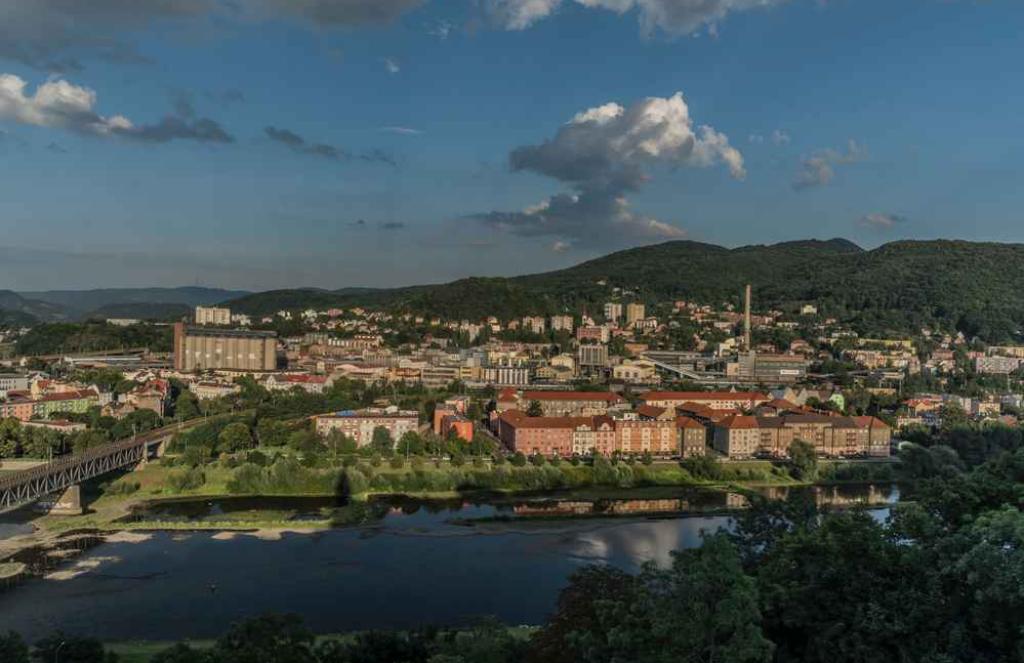Thessaloniki gets ready for its metro launch in November
The underground rapid transit lines have been under construction for almost two decades due to various project delays
 TheMayor.EU logo
TheMayor.EU logo 
Usti nad Labem will be a midway stop for the high-speed train service between Prague and Dresden, Source: Depositphotos
Construction noise and traffic disruptions are among the chief concerns for the people of Usti nad Labem
If everything goes according to plan, Czechia should see the construction of its first high-speed railway take off in 2027. The plan of the authorities is to link the capital Prague to the German city of Dresden passing through Ústí nad Labem, in northern Bohemia, which lies more or less in the middle.
It turns out, however, that despite the great transport and economic development opportunities that such a grand project implies, not all residents of Usti nad Labem are excited about the route passing through their town.
In fact, some 600 complaints have been filed from the community raising objections about things like the risks, the noise pollution and the traffic-related disruptions that the construction of the railway would invariably entail. There have even been calls to divert the route so that it bypasses the city.
According to Expats.cz, the Czech Transport Minister Martin Kupka has responded by saying that the government has taken every step to listen to the concerns and to involve the community in the decision-making process and that working mediating groups will be formed. Nevertheless, the authorities are adamant that the project will proceed as planned.
The project timeline indicates that construction is set to begin somewhere in 2027 and that the first section to be constructed will be a 58-kilometre stretch between Prague and Usti nad Labem, which will take 6 years to complete. The Bohemian city will be equidistant from both Dresden and Prague, with the expectation that it will take half an hour to either of these destinations departing from it.
In certain parts, trains will reach up to 320 km/h and the overall route should be ready somewhere between 2038 and 2045.

The underground rapid transit lines have been under construction for almost two decades due to various project delays

Now you can get your wine in Talence by paying directly in Bitcoin

That’s because the state has to spend money on updating the railway infrastructure rather than subsidizing the cost of the popular pass

Rethinking renewable energy sources for the urban landscape

The examples, compiled by Beyond Fossil Fuels, can inform and inspire communities and entrepreneurs that still feel trepidation at the prospect of energy transition

Now you can get your wine in Talence by paying directly in Bitcoin

The 10th European Conference on Sustainable Cities and Towns (ESCT) sets the stage for stronger cooperation between the EU, national and local level to fast track Europe's transition to climate neutrality.

At least, that’s the promise made by the mayor of Paris, Anne Hidalgo

The underground rapid transit lines have been under construction for almost two decades due to various project delays

At least, that’s the promise made by the mayor of Paris, Anne Hidalgo

Hostal de Pinós is located in the geographical centre of the autonomous region

Despite its church-y name, the district has long been known as the hangout spot for the artsy crowds

Urban dwellers across the EU are having a say in making their surroundings friendlier to people and the environment.

Forests in the EU can help green the European construction industry and bolster a continent-wide push for architectural improvements.

Apply by 10 November and do your part for the transformation of European public spaces

An interview with the Mayor of a Polish city that seeks to reinvent itself

An interview with the newly elected ICLEI President and Mayor of Malmö

A conversation with the Mayor of Lisbon about the spirit and dimensions of innovation present in the Portuguese capital














